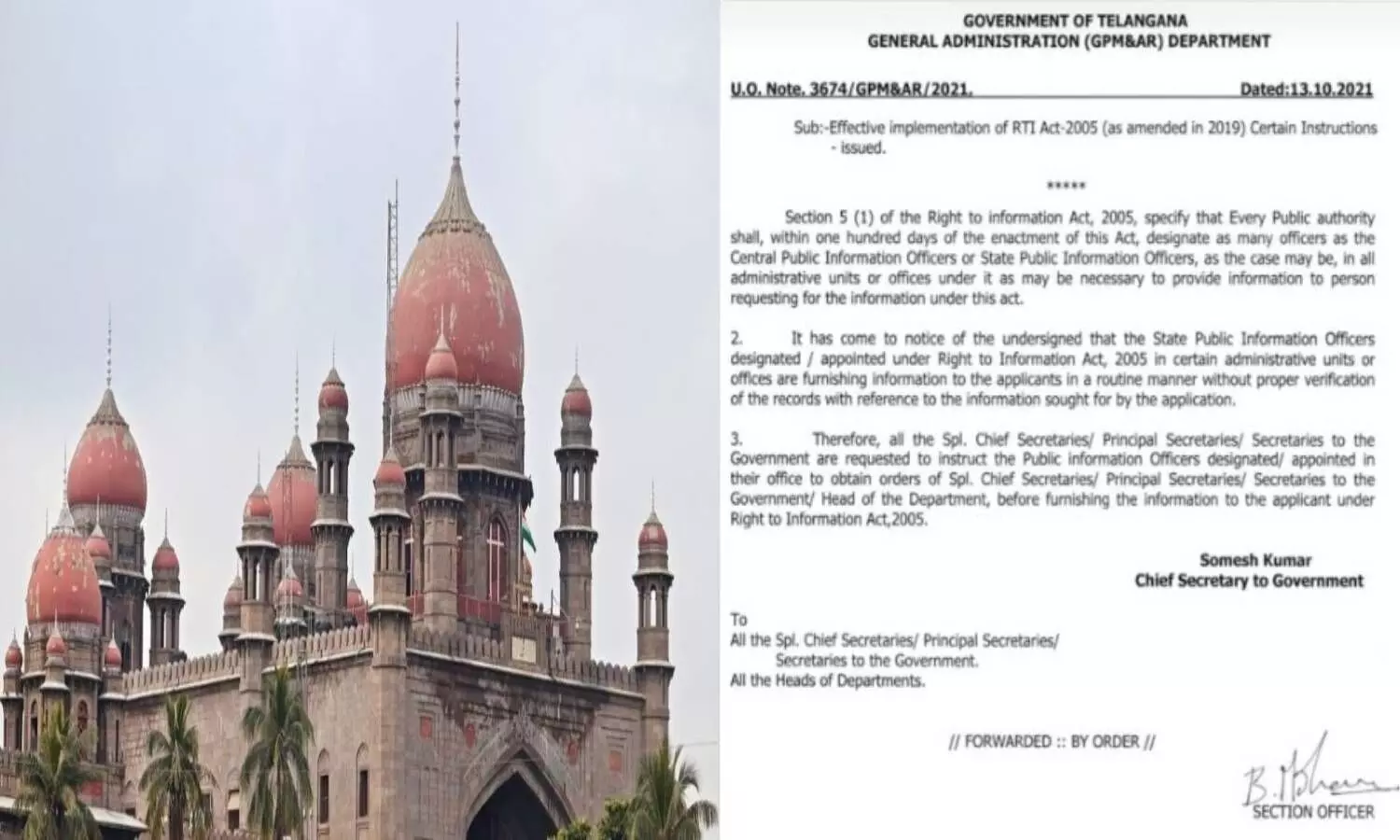TS High Court stays chief secy's controversial order seeking stricter scrutiny of RTI applications
The Chief Justice was hearing a Public Interest Litigation (PIL) filed by Ganji Srinivas Rao, an RTI activist, challenging the internal order issued by the chief secretary.
By Newsmeter Network
Hyderabad: The High Court of Telangana has passed an interim order staying chief secretary Somesh Kumar's internal note dated 13 October who directed all public information officers under the RTI Act 2005 to obtain orders from secretaries and heads of various departments before furnishing information sought by an RTI applicant.
Chief Justice Satish Chandra Sharma said there is no need to seek permission from officials to give information under the RTI Act.
"Apparently, in the interim order, the Chief Justice has said that the state has got no right to dilute the RTI," said Karam Kommireddy, an advocate at the Telangana High Court. "The HC has also directed the state government to file a counter within four weeks," he added.
The Chief Justice was hearing a Public Interest Litigation (PIL) filed by Ganji Srinivas Rao, an RTI activist, challenging the internal order issued by the chief secretary.
Mr. Kumar's order read, "All the special chief secretaries/principal secretaries/secretaries to the government are requested to instruct the public information officers designated to obtain orders of special CS, PS, and heads of the department before furnishing the information to the applicant under RTI Act, 2005."
It further said, "It has come to the notice of the undersigned that the state public information officers designated/appointed under Right to Information Act 2005 in certain administrative units or offices are furnishing information to the applicants in a routine manner without proper verification of records with reference to the information sought by the applicant"
The order had evoked sharp responses from RTI activists who termed it a threat to the public right to information.
Madabhushi Sridhar Acharyulu, a former information commissioner of the government of India, explained, "The authority gets 30 days to disseminate information according to the law. Within this period they (authority) can consult officials within departments and release information. But the consequences of this order do not go well in the spirit of the RTI Act. Every public information officer (PIO) is supposed to be an independent authority however he/she has to follow the policy laid down by the government."
He added, "A PIO is a nut in the missionary. However, the chief secretary can frame a border policy that has to be followed by PIOs. But the recent order wherein every application must seek the permission of the head of departments will create a lot of administrative hurdles in terms of manpower and infrastructure, and nobody will be able to take an independent decision. It creates a lot of practical problems."